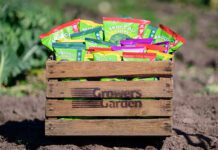The market for tea has been changing for some time now, and with sectors like green and fruit claiming more converts, along with coffee, black tea is no longer the dominant force it once was.
For retailers still predominantly favouring black tea on their shelves, Tetley suggests the time may be right to turn over a new leaf.

“Compared to the wider market, convenience stores have greater reliance on everyday black teas (86.3% of overall tea sales compared to 79.5% in the wider market) and less presence in the growth areas of tea,” said director of customer and shopper marketing for Tetley, Peter Dries.
“In time these growth areas will exceed everyday black sales and convenience stores need to be in a better position to exploit the opportunities available here.”
He pointed to two key areas of growth for tea sales in Scotland: Green, up 1.4% in volume and 5.1% in value, and Redbush, up 1.8% in volume. And he reckons retailers shouldn’t dismiss decaf.
“Decaf drinkers won’t choose anything else so if a decaf option is not available a sale won’t be made,” he said.
• In recent years, consumers have become more aware of how specialised teas can be a health benefit, says Clipper.
The company’s latest product innovation is the launch of a new green tea collection – Super Greens, designed to support shoppers who have a busy or active lifestyle with everyday wellness and routine.
• Unilever is aiming to capitalise on what it sees as the growing trend for speciality and herbal teas with the launch of Pure Leaf.

A collection of 10 flavours in loose leaf and pyramid bag variants, Unilever says the range has been expertly crafted to deliver a “genuine tea-drinking experience”.













